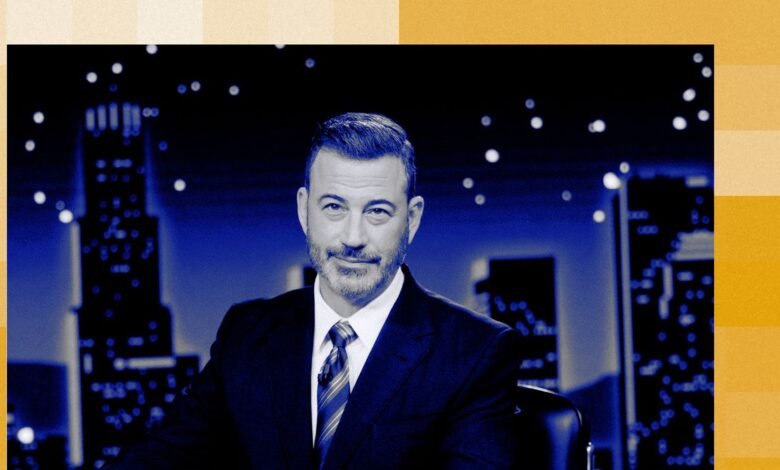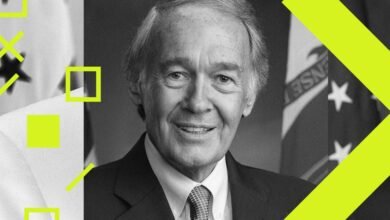Jimmy Kimmel’s Monologue Accelerates Broadcast TV’s Decline

▼ Summary
– Jimmy Kimmel’s return to ABC was blocked by Sinclair and Nexstar affiliates due to a controversial joke, with FCC chair Brendan Carr appearing to threaten action against stations that aired the show.
– The FCC retains power to revoke broadcast licenses based on public interest standards, an authority from an era when most viewers used antennas, though most now watch via cable or internet.
– The author proposes that Disney and other networks could bypass troublesome affiliates and FCC threats by streaming content directly through apps like Hulu, eliminating the need for broadcast spectrum.
– Former FCC officials agree this shift is already happening, with one describing traditional broadcast television as a “melting ice cube” that is inevitably declining.
– While existing contracts delay an immediate change, industry analysts and executives question the sustainability of the current affiliate model and suggest direct streaming could be more profitable.
A significant portion of Jimmy Kimmel’s audience was absent upon his return to ABC this week. The reason stems from a major dispute, as two large owners of ABC affiliates, Sinclair and Nexstar, decided to pull the show from their stations. These right-leaning companies objected to a joke made by Kimmel that contained some contested facts, deeming it unacceptable for their viewers. Their decision to drop the program came swiftly after Federal Communications Commission chair Brendan Carr appeared to threaten potential action. This situation places not only the stations that continued to air the show but also Disney, ABC’s parent company, in a difficult position, potentially facing the displeasure of a government official who seems willing to use regulatory power to quiet dissent.
The authority held by the FCC chair is not insignificant. The commission possesses the ability to grant or revoke broadcast licenses, a power rooted in the requirement that stations must serve the public interest. This system is a holdover from a bygone era when nearly all television content was delivered over the air via antennas. Local stations were allocated a slice of the limited broadcast spectrum and had to adhere to specific standards to maintain their license. Today’s media environment is vastly different. Local television stations now reach most viewers through cable packages or internet-based services. Furthermore, networks are increasingly distributing their programming directly to consumers through dedicated streaming apps. Despite this shift, the threat of license revocation remains a potent tool that can be used to pressure networks and their affiliate partners.
This entire conflict prompts a fundamental question: why does the current regulatory framework for broadcast television still exist? For major network owners like Disney (ABC), Comcast (NBC), and Paramount (CBS), the system presents considerable challenges. Instead of navigating the demands of regulators and affiliate stations that are comfortable with censoring content, perhaps it’s time for a strategic shift. Disney could choose not to renew contracts with problematic affiliates and instead launch its own local stations that operate purely as cable channels or streaming apps, completely bypassing the traditional broadcast spectrum. This would free the company from FCC oversight and allow it to control its distribution fully. Let Sinclair and Nexstar source their own programming tailored to their specific standards, while Disney embraces a future untethered from the airwaves.
When this concept was discussed with a former FCC commissioner, they acknowledged potential complications related to existing contracts. However, they generally agreed that the idea was not only logical but already in progress on a large scale. The executive noted, speaking anonymously, that Disney’s moves with streaming services like Hulu and its own app are clear steps in this direction. Another expert, Blair Levin, former chief of staff to an FCC chairman, was even more direct, describing the broadcast television model as a “melting ice cube,” with its eventual demise being only a matter of time.
The controversy surrounding Jimmy Kimmel has simply accelerated a process that was already underway. As these discussions were happening, an investment bank specializing in media, Needham, released analysis suggesting even more immediate action. Their note recommended that Disney should begin streaming its entire schedule without delay. The financial gains from advertising and subscriptions, they argued, would likely surpass any losses, potentially boosting the company’s market value.
While a sudden, complete transition is unlikely due to multiyear affiliate contracts and established relationships, the underlying structure appears increasingly fragile. A television station executive, when asked if the current affiliate-network model is sustainable, conceded that it is a “real question,” admitting that the partnership has become significantly more strained. This suggests that the traditional broadcast system may be living on borrowed time.
(Source: Wired)





